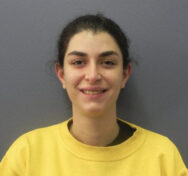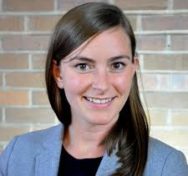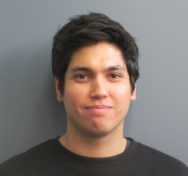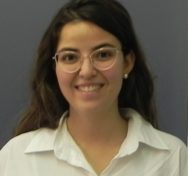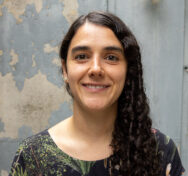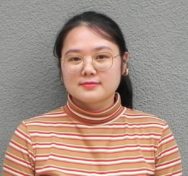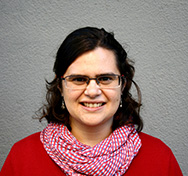GENERAL ADMISSION REQUIREMENTS
- Holding an official university degree, either Spanish or from any other country in the European Higher Education Area or, in other words, having obtained a minimum of 300 ECTS credits accumulated throughout the totality of formal university education. Of these credits, 60 or more must be at Master’s degree level.
- Holding an official Spanish academic qualification, which entails having achieved a minimum of 300 ECTS credits. These graduates must obligatorily complete supplementary training requirements.
- Holding a university degree obtained in accordance with the requirements of the educational system in other countries. It is not necessary to obtain official recognition of this qualification (homologation) by the Spanish authorities. However, it is necessary to obtain prior verification from the university which awarded the degree, stating that the qualification is equivalent to a master’s degree obtained from a Spanish university and that, in the country which awards the degree, it is sufficient qualification to allow access to a PhD programme.
- Holding a Spanish PhD obtained in accordance with previous university regulations.
Admission to the PhD programme will be decided by the vice-chancellor and is subject to completion of supplementary training where required.
SPECIFIC ADMISSION REQUIREMENTS
- 25%Qualifications detailed in academic record
- 20%Thematic appropriateness
- 15%Affinity of access studies with the field of Demography
- 20%Letter of motivation and personal interview
- 10%Obtaining research grants or subsidies
- 10%Linguistic competence
- Admission will be subject to acceptance by a thesis supervisor proposed by the academic commission for the doctoral programme
ADMISSION
-
- The candidate wishing to enrol for a PhD must apply to the academic commission for the doctoral programme.
- Once the candidate is admitted, the academic commission for the doctoral programme assigns him or her an academic tutor.
Pre-registration periods, academic year 2025-2026:
-
- From 22 January to 28 February
Maximum PROPOSAL by the coordinator: 7 March
Maximum RESOLUTION by the Doctoral School: 14 March
- From 10 February to 21 March
Maximum PROPOSAL by the coordinator: 4 April
Maximum RESOLUTION by the Doctoral School: 30 April
- From 4 April to 30 May
Maximum PROPOSAL by the coordinator: 10 June
Maximum RESOLUTION by the Doctoral School: 27 June
- From June 10th to 31 July
- Maximum PROPOSAL by the coordinator: 10 September
Maximum RESOLUTION by the Doctoral School: 3 October
- From 1 August to 15 October
- Maximum PROPOSAL by the coordinator: 25 October
Maximum RESOLUTON by the Doctoral School: 5 November
- From 17 October to 28 November
- Maximum PROPOSAL by the coordinator: 3 December
Maximum RESOLUTON by the Doctoral School: 19 December
DOCUMENTATION NECESSARY FOR ADMISSION
- Letter of motivation.
- Curriculum vitae.
- Photocopy of academic record, including first degrees and master’s degrees previously obtained.
- Proposal of a research theme to be presented in the PhD thesis.
More information
COMPOSITION OF THE ACADEMIC COMMITTEE OF THE PhD PROGRAM
Coordinator of the doctoral programme: Joaquín Recaño
Representatives of the lines of research in the PhD in Demography programme:
Andreu Domingo, Albert Esteve, Juan Antonio Módenes, Iñaki Permanyer, Joana Maria Pujadas, Joaquín Recaño, Mariona Riera
GRANTS
Joan Oró grant to hire research staff in training (FI 2026)
Call for proposals
Prioritisation criteria (FI 2026)
*******
Apart from some exceptions, the PhD in Demography programme entails full-time attendance. It is highly recommended that the PhD student should obtain a grant or other form of funding for a minimum of three years. The doctoral programme supports students with a good academic record in their applications for competitive national and international scholarships.
For further information concerning admission please contact:
Teaching coordinator:
Joaquín Recaño / joaquin.recano@uab.cat
Academic management:
Inés Brancós Coll / ibrancos@ced.uab.cat
Miquel Valls / mvalls@ced.uab.cat
Centre d’Estudis Demogràfics (CED)
Universitat Autònoma de Barcelona
08193 Bellaterra
Telephone: 93 581 30 60
ANNUAL EVALUATION AND REVIEW
ANNUAL EVALUATION AND REVIEW OF THE THESIS PHD IN DEMOGRAPHY
Course 2024-2025
Monitoring takes place after admission and registration for the doctorate, once a year, and consists of the presentation by the doctoral student of progress made up to the time of the meeting of the monitoring committee. Passing this test is a condition for registering for the following year.
The Academic Committee for the Doctorate must approve and publish before 20 December each academic year the composition of the Monitoring Committees, the timetable and dates and the procedure for the monitoring (oral presentation of progress in public session and previous submission of additional documentation).
1. COMPOSITION OF MONITORING COMMITTEE
The composition of the monitoring committee for Doctorate Studies in Demography will be individual for each doctoral student and will be composed of three PhD. The Directors and tutors cannot be part of this Commission.
During the January 2025 an email will be sent to each PhD student to inform them of the composition of their monitoring committee.
2. TIMETABLE OF MONITORING COMMITTEES
The monitoring committees will meet on:
– 16, 17, 18, 19 and 20 June 2025 (1st sitting)
– 15, 16, 17, 18 and 19 September 2025 (2nd sitting)
The doctorate programme will contact each student to set the exact date and time of the meeting of each monitoring committee.
3. SUBMISSION OF THE ANNUAL MONITORING REPORTS TO THE MEMBERS OF THE MONITORING COMMITTEES
3.1. Annual monitoring report of the direction of the doctoral thesis
The thesis supervisor must present a report (maximum 500 words) containing:
a) A general assessment of the progress of the doctorate student from the commencement of doctorate studies or over the last academic year.
b) An assessment of the student continuing in the programme.
3.2. Doctoral student’s annual monitoring report
The doctoral student must present an oral academic report (maximum 15-20 minutes) to the members of the monitoring committee, with the approval of the supervisor and tutor.
In addition, prior to the monitoring session, the following documentation must be sent, in digital format, to each of the members of the Monitoring Committee and with a copy to the directors and to the person in charge of Teaching and Training Programmes at the CED:
- Annual monitoring form CAT/ ESP
- Doctoral thesis research plan (only doctoral students in 1st monitoring)
- Document on activities carried out in 2023-24 academic year CAT/ ESP
- Presentation to members of the monitoring committee (.ppt format)
- Current curriculum vitae (free format)
- Doctoral thesis supervisor’s report CAT / ESP / ENG
CED website: https://ced.cat/en/doctorat/doctorat-en-demografia/
4. DATE OF SUBMISSION OF DOCUMENTATION
The doctoral student must submit his/her documentation, as well as the supervisor’s report, one week before the monitoring committee.
5. ASSESSMENT OF THE FOLLOW-UP TEST
After each meeting, the members of the monitoring committee will draw up and sign the record of assessment and joint monitoring report.
The members of the committee may report:
– favourably (the doctorate student has passed the test and may register for the following academic course)
– favourably with observations (the doctorate student passes the monitoring but must carry out the observations for improvement proposed by the members of the monitoring committee.)
–unfavourably (the doctorate student has the opportunity for a second sitting. You must register for the following year and be assessed within 6 months.)
The records of assessment of the monitoring of each doctorate student will be filed together with the documentation by the doctorate programme. A list will then be prepared for each year of monitoring of the doctorate students subjected to monitoring tests and the results obtained *, which will be approved by the Academic Committee of the Doctoral Program (CAPD) and signed by the programme co-ordinator. This list will be sent to the Doctorate School before 30 September each year.
*In the event that there is a negative evaluation in the test called, the CAPD will summon the affected doctoral student within the period set by the regulations.
6. NON-PRESENTIAL MONITORING
According to the academic regulations governing doctorate studies in accordance with RD99/2011, article 351. Doctoral student assessment, point 2) states the following: This yearly assessment must also include oral and presential presentation by the doctorate student of the state of the work carried out. In exceptional cases the academic committee of the doctorate programme may, having obtained a report by the superviser and the tutor, grant permission to replace presential presentation with another format.




















